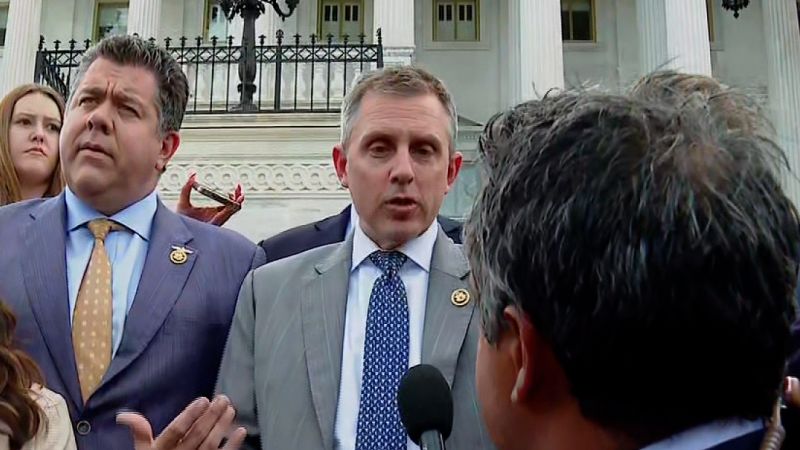LOS ANGELES — Mookie Betts was returning from paternity leave, his car was stuck in Chicago freeway gridlock for what seemed like an eternity and he arrived at Wrigley Field late for that night’s game.
The Los Angeles Dodgers knew in advance that Betts would miss the first pitch against the Cubs. And Manager Dave Roberts had put Betts on notice that once he arrived he was going to be playing shortstop for the first time in his major league career — and for the first time at any level in 10 years.
So which was more harrowing for Betts, an All-Star outfielder and Most Valuable Player Award winner: the anxiety of being caught in traffic while the game was starting, or playing shortstop in the majors for the first time?
“Cab ride,” Roberts guessed without missing a beat.
Roberts, in his ninth season as the Dodgers’ manager, is known for his superhuman-like communication with his players. But on this question, he whiffed.
“Nah, man, going out to short for the first time was definitely more nerve-racking,” Betts said over the weekend at Dodger Stadium, where he smashed two home runs, drove in three runs, scored three more and made his fifth start at shortstop while leading the first-place Dodgers to a three-game sweep of the slumping San Diego Padres.
Betts’s answer, though, came with a caveat: His debut at shortstop was more stressful because his late arrival prevented him from taking any ground balls before the game.
“It was just — bam!” Betts said.
Sometimes, Betts allowed, it’s best that way. Few things rattle him on a baseball diamond, and a decade into his big league career, his antics and abilities no longer surprise his teammates. So his regularly filling in at shortstop and second base, in addition to having his usual outfield duties, is exactly the kind of thing they would expect him to do, regardless of how ridiculous that sounds.
“I mean, the guy bowls 300s in the morning and comes in and hits home runs at night,” first baseman Freddie Freeman said, referencing one of Betts’ widely known hobbies. “The guy’s a special talent. He’s a complete team player, three different positions already this year in the first 37, 38 games. Switching positions and leading off every single day, it’s a tough task. But if anybody can handle it, it’s him.”
Betts’s increasingly frequent infield assignments are borne out of necessity. When last year’s Dodgers shortstop, Trea Turner, signed an 11-year, $300 million deal with Philadelphia in the off-season, the Dodgers made a conscious decision to step back with their own payroll. The idea was to reset their roster, give opportunities to prospects such as infielder Miguel Vargas and outfielder James Outman and parlay their years of winning — nine National League West titles in 10 years — without having to rebuild.
The Dodgers were not so much slashing their payroll as picking their spots. Though down from last year’s figure, a league-high $270 million, their $225 million payroll in 2023 still ranks fifth in Major League Baseball.
The idea was to play Gavin Lux, a homegrown player with a promising bat, at shortstop and Vargas at second. But when Lux suffered a season-ending knee injury in spring training, plans changed.
What the Dodgers were left with was Miguel Rojas, 34, a veteran acquired in a trade with Miami during the winter to help Lux adjust to shortstop, and Chris Taylor, a utility player more accustomed to the outfield.
Enter Betts, who had made occasional appearances at second base going all the way back to his rookie season in Boston. He grew up playing shortstop and had dreamed of one day doing so in the majors.
“I didn’t think I was actually going to end up playing short, but I always told them, like, ‘Hey, you know, I’m available to do it if push ever comes to shove,’” Betts said. “And push came to shove.”
Push coming to shove is a consistent, if sometimes unwelcome, intruder in the game. The Tigers famously moved center fielder Mickey Stanley to shortstop for the 1968 World Series, removing the light-hitting regular Ray Oyler. Stanley had never played the position before yet he managed it well and Detroit defeated the Cardinals in seven games.
Decades later, in 2012, Detroit had once again developed a vexing hole when Victor Martinez suffered a season-ending knee injury. Unlike Lux’s injury, Martinez’s happened well before the season started. So the Tigers signed the free agent slugger Prince Fielder and shoved an agreeable, but not particularly graceful, Miguel Cabrera from first base to third.
“You came up as a shortstop, this should be easy for you,” Dino Ebel, who was the Angels’ third-base coach that year and now has that role with the Dodgers, teased Cabrera when the their teams faced each other.
“He was like, ‘Yeah, here I am, playing the left side of the diamond again,’” Ebel said.
Betts was drafted as a shortstop by Boston in 2011, and unlike Cabrera he had the physique to stay in the position on a long-term basis. But with the All-Star Dustin Pedroia established at second base in the majors and Xander Bogaerts already in the Red Sox system, Betts moved to the outfield. Before his recent cameos, he had last played shortstop professionally in the Arizona Fall League in 2013 and had logged only 112 professional innings at the position.
His first appearance in Chicago had come because Rojas (hamstring) and Taylor (oblique) were injured. But he has now played seven games at the position, including five starts. He committed a throwing error Saturday against San Diego, but he has otherwise been flawless, including turning a slick double play while leaping over a sliding baserunner during his debut in Chicago. Advanced statistics suggest his defensive play at shortstop, in an admittedly small sample, has been close to elite, just as it is at second base and in right field.
The change in position has coincided with some extra pop at the plate as well: Three of his nine homers have come while playing shortstop.
Though Betts has won six Gold Gloves as a right fielder, it has never been a secret that he gets bored in the outfield. His favorite position, he said, “if you could just pick, it’d probably be short or second, either one. They’re very interchangeable for me. They get the most action and I just feel like that’s where my athleticism kind of plays the most.”
He added: “I just told them, ‘I’m a tool, use me.’ I’m here. It’s not like I’m fighting for my next contract. I just want to win.”
Part of that is the security afforded to him by a 12-year, $365 million deal ($30.4 million average annual value) he signed with the Dodgers ahead of the 2020 season. The deal has aged well compared to some of the megadeals handed out last off-season, even beyond Betts’ ability to shift seamlessly, and without complaint, to the infield whenever the team needs him.
Even once the Dodgers’ roster gets healthy, Betts has done the work to prove that he is capable of playing the infield in a meaningful number of innings, with Roberts estimating that he could get between 15 to 20 infield starts this season. That number could fluctuate based on performance and team need.
“When I saw him in spring training taking ground balls, right away I knew he takes things seriously and he’s not there just to mess around and have fun,” Rojas said.
Betts, who has taken daily ground balls at both second base and shortstop during batting practice for years, frequently compares notes with Rojas as they work together in the early afternoon. Before the series opener with the Padres on Friday, Rojas complimented Betts on using the right technique on a particular backhand play. Betts returned a compliment regarding Rojas’ proper positioning on a ball in front of him.
“He’s one of the best athletes I’ve ever seen,” Freeman said of Betts. “He wants to do whatever he’s asked to do, and he makes it look pretty easy.”
That confidence has permeated the clubhouse, with the ultimate endorsement coming ahead of the series finale in Chicago last month. Roberts was considering giving Betts his first start at shortstop, but with Clayton Kershaw scheduled to pitch, Roberts made sure to check with his ace to get his blessing.
“He was like, ‘I’m in,’” Roberts said. “And so at that point in time, I think it freed everybody up that if Clayton trusts him, then let’s just go and do it.”
Wherever the team puts him defensively, Betts exudes calm. It is why Roberts was sure the car ride from O’Hare Airport to Wrigley Field would have stressed Betts more than playing shortstop in the majors.
“I marvel not only at the mechanics of it, but the heartbeat of it,” Roberts said. “Because if you haven’t done something in a major league game, you would think there would be a little bit of extra anxiousness. But with him, there’s none.”







More News
The former Denver Bronco who bought a pub in England – and saw his world implode
Think Dan Lanning will leave Oregon? Check the ink
TNT Sports’ boss said they didn’t need the NBA — we’re about to find out